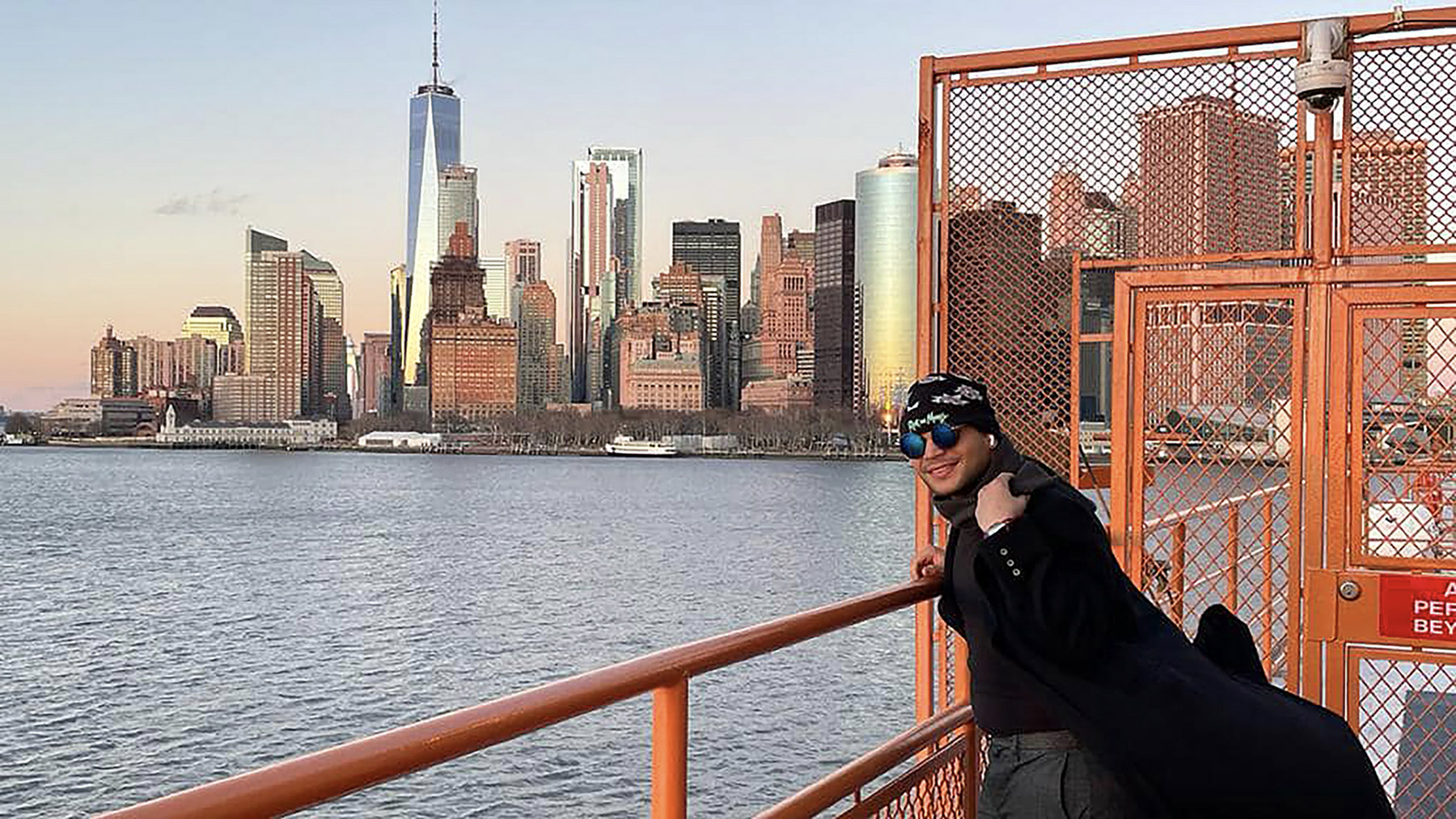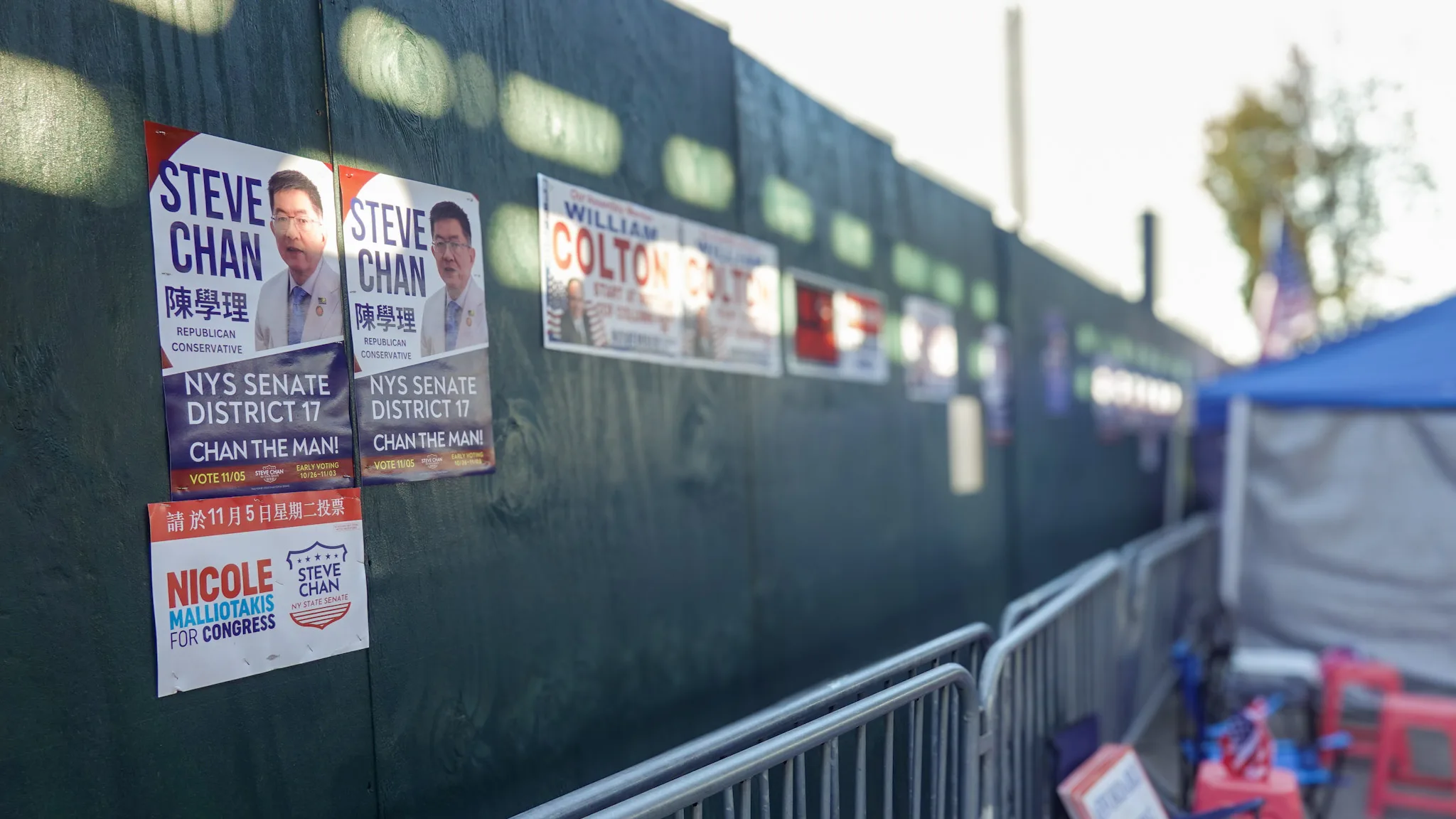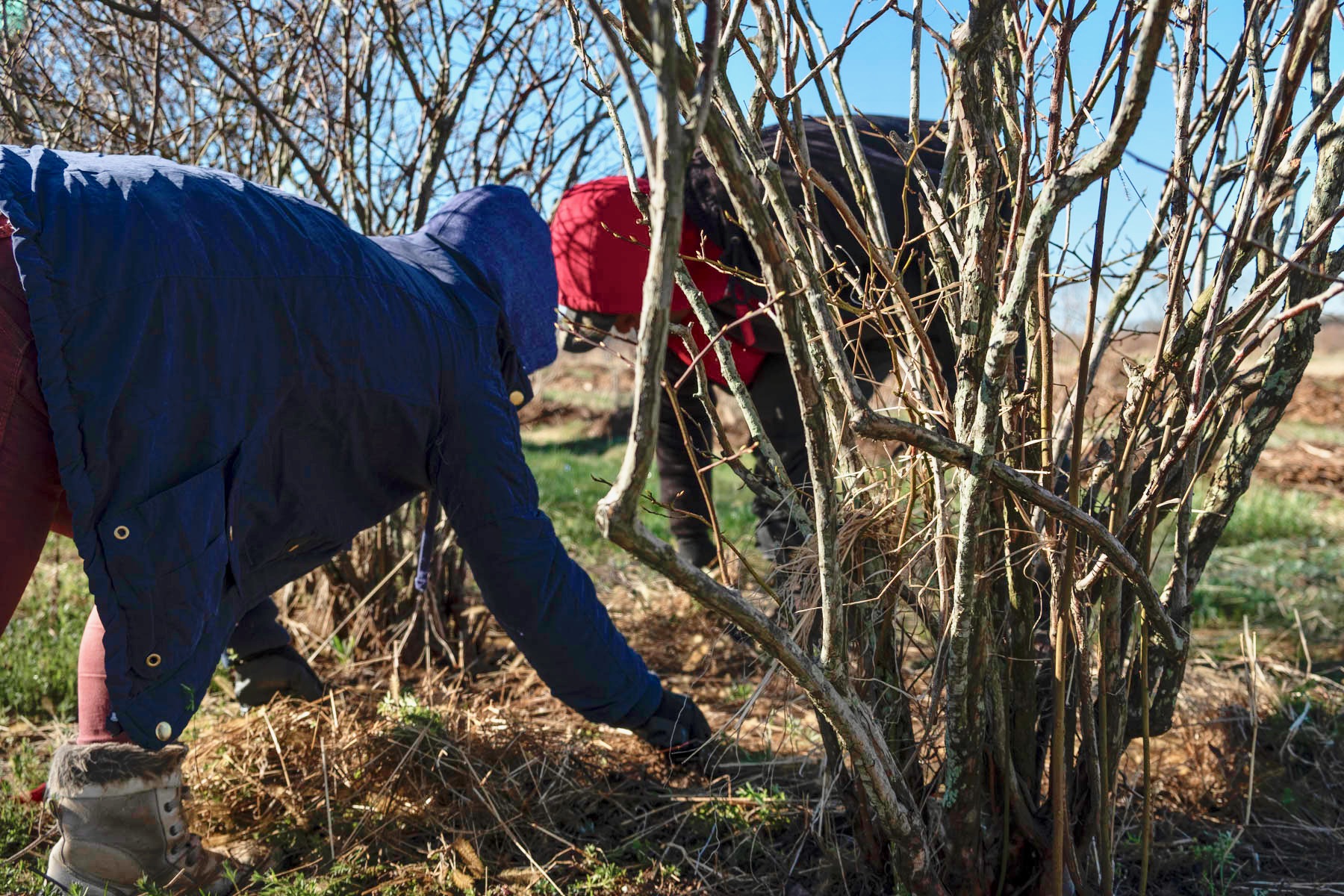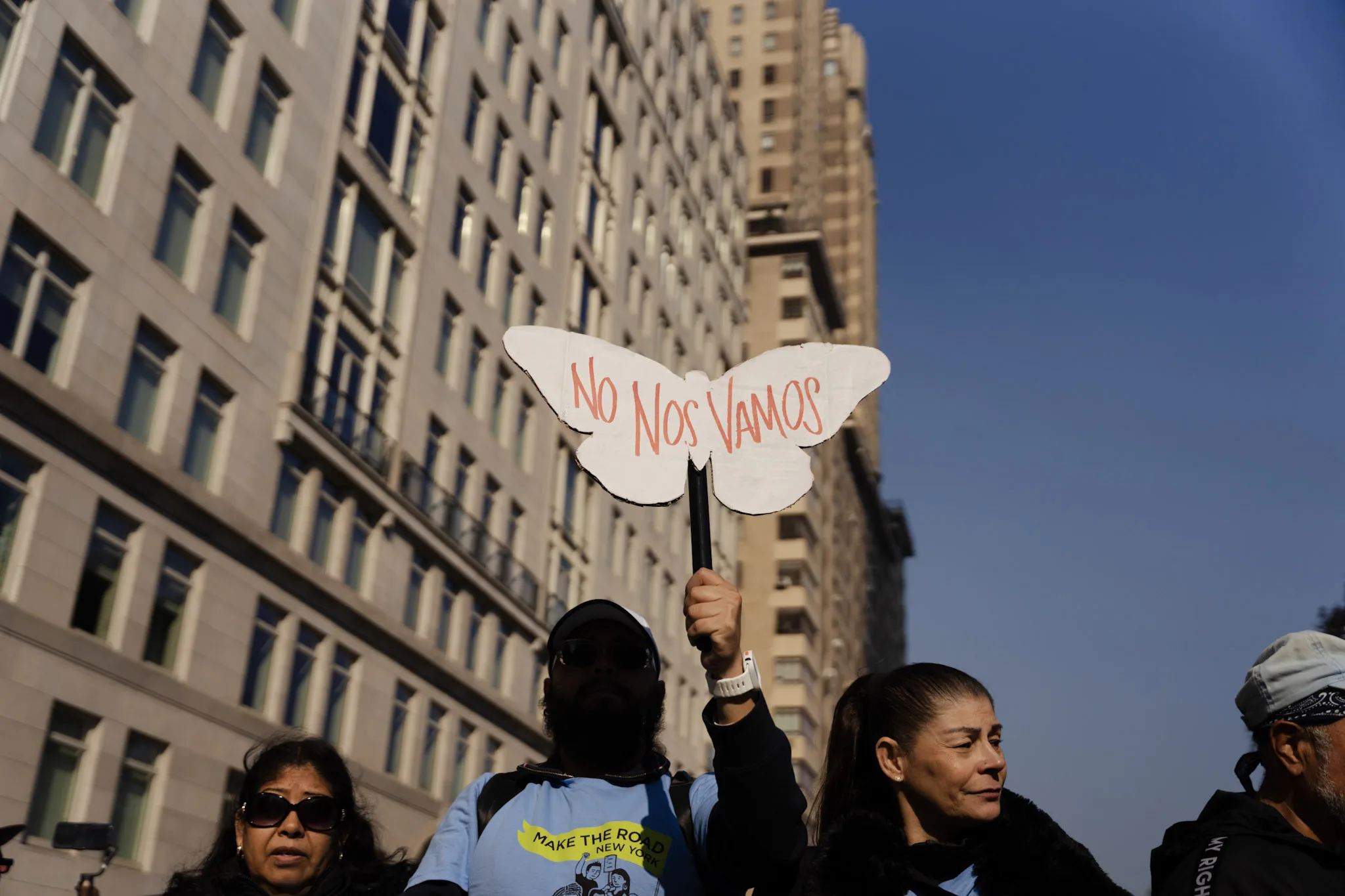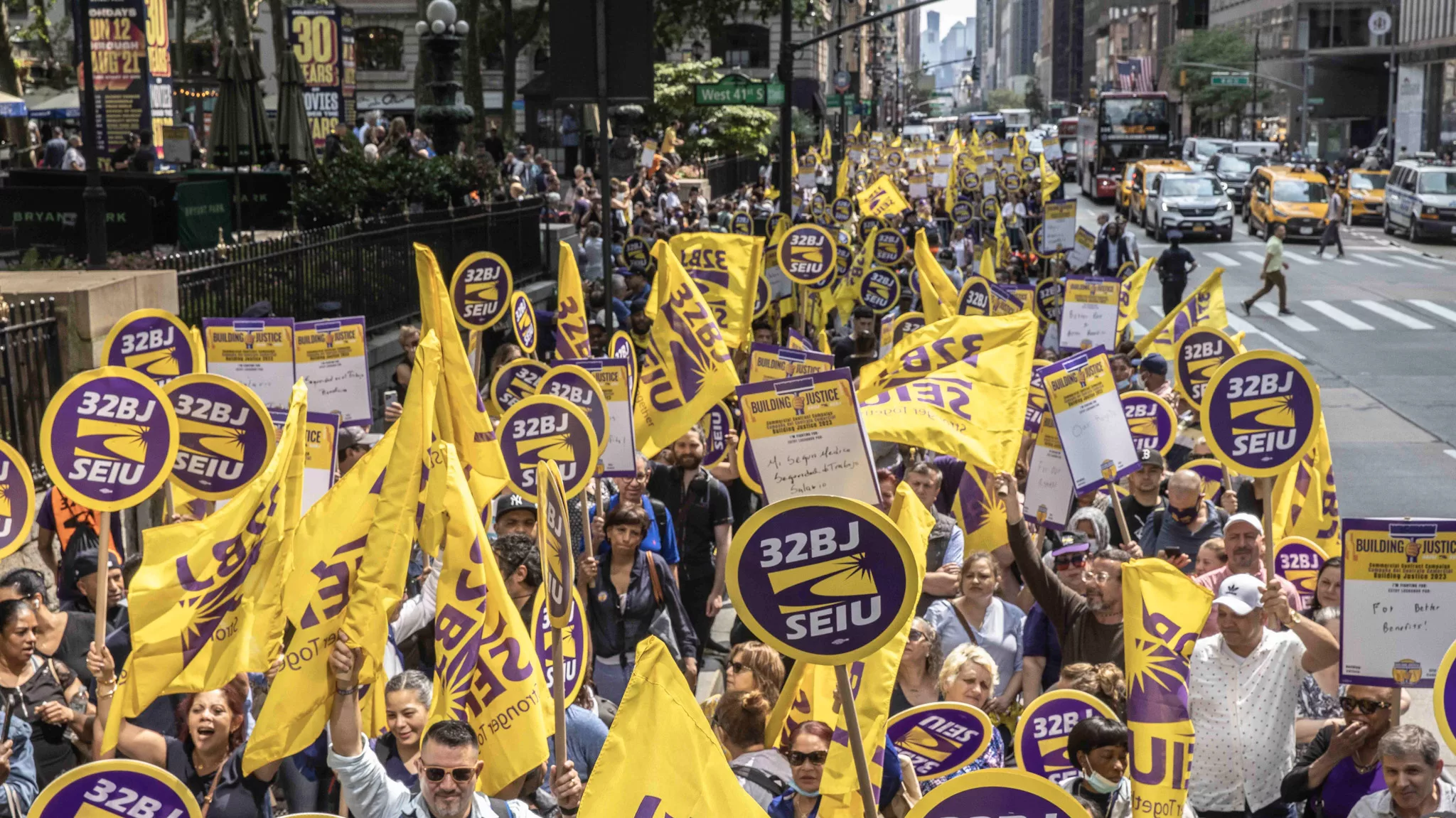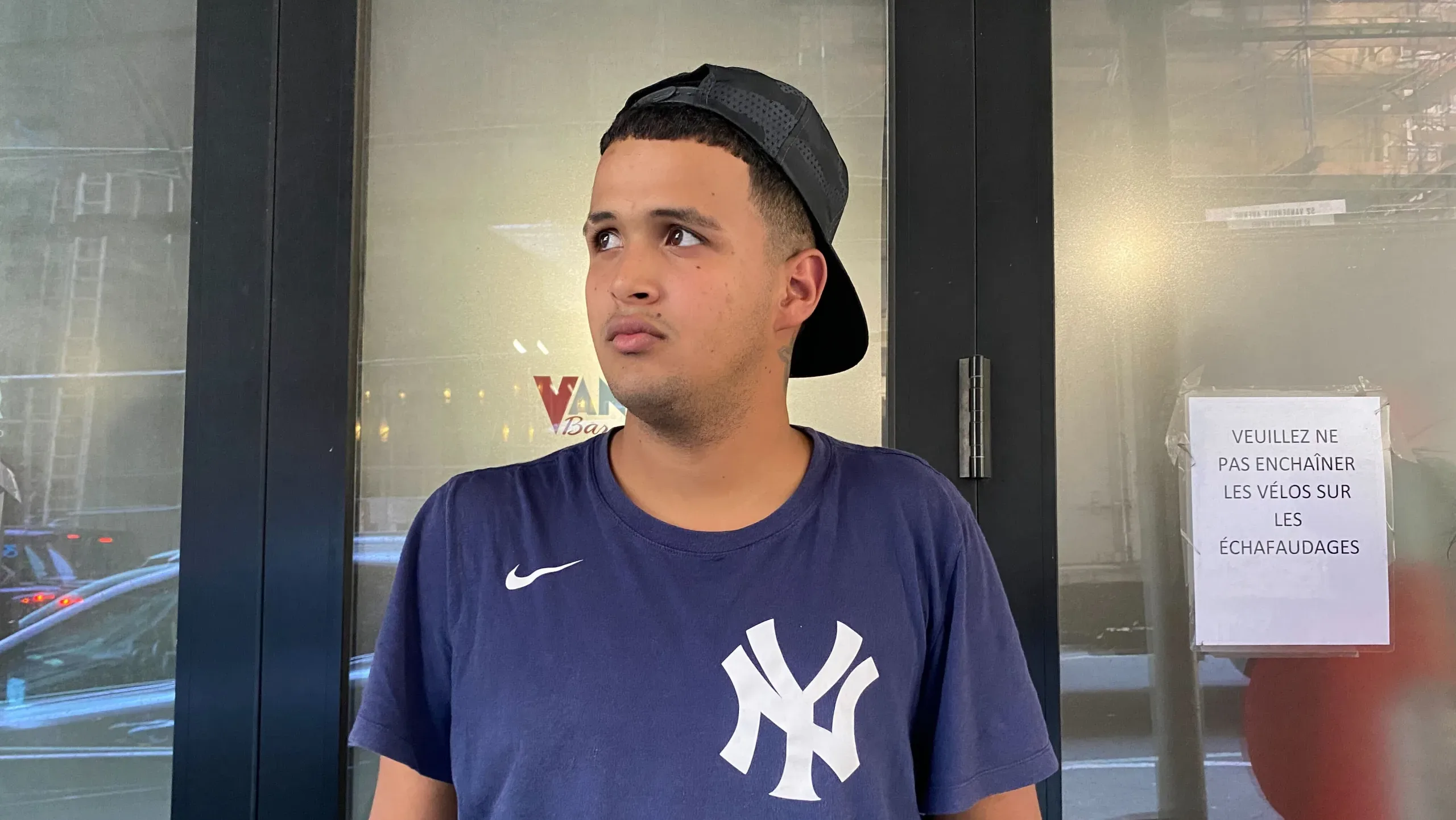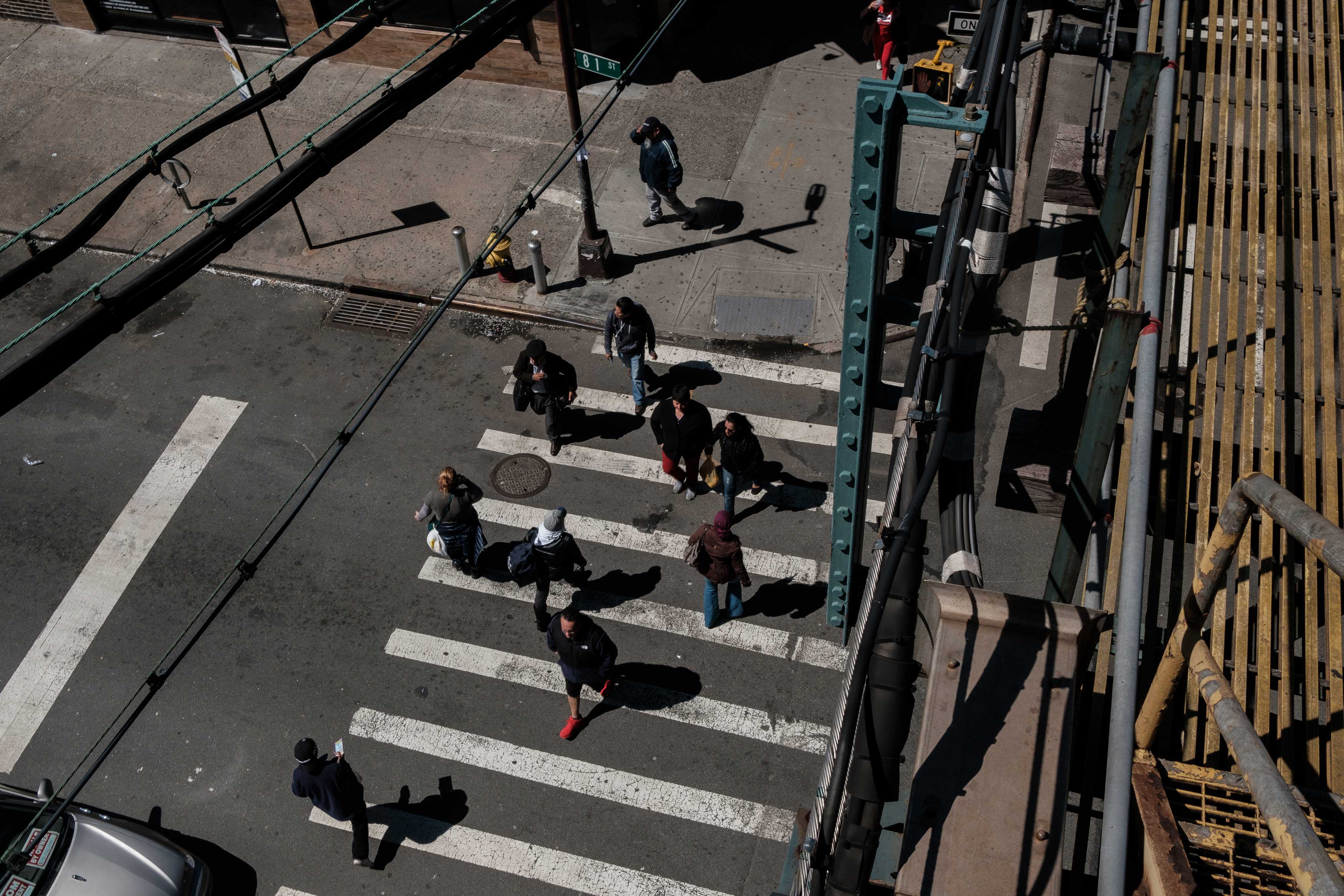The moment Derwin Olivar took the stage at the talent show hosted in his hometown of Cantaura, Venezuela, the crowd marveled at the talent he possessed. At 16 years old, his voice effortlessly traversed the notes of popular Latin artists like that of Reik and Sin Bandera. Despite his limited musical training, he became a staple at local night clubs, belting out romantic pop songs and urban hits. He was soon asked to open for the local clubs in his hometown, a small province eight hours from Venezuela’s capital, Caracas.
Also Read: The Unspoken Toll Migration Has on Mental Health
The following years, singing under the stage name of Jesús De La Rosa, Derwin collaborated with renowned groups like Salserin, a salsa band from Caracas popular in South America. By 2018, at age 25, Derwin earned a place as a contestant in the popular singing competition show La Voz Mexico. His performances of Camilla Cabello’s “Havana” in Spanish and Ozuna’s “Se Preparó” propelled him to the semi-finals and drew fans from all over the world.
After the show, the pandemic upended Derwin’s plan to embark on a new musical project in Mexico. But he stayed active and collaborated remotely with other musicians in Cantaura, and abroad. As the borders reopened in 2021, Derwin set his sights on the United States. His family supported the move, not imagining that nearly two years later Derwin would succumb to the pressures of migration.
On Saturday, April 22, at around 6 p.m., Derwin’s brother, Darwin, received a call from the receptionist at the St. Nicholas Hotel in Harlem, which serves as transitory housing for individuals with HIV/AIDS. He was told that Derwin had died.
‘Everything was going fine’
In 2021, Derwin, along with his two brothers — Darwin, 30, and Ricardo, 23 — migrated to the U.S. The brothers settled in Philadelphia where they found work at a restaurant.
Derwin, on the other hand, wanted to expand his musical talents and decided to come to New York City, where he rented an apartment. His mother, Vicenta Giovana La Rosa, said he always told her on the phone that he was doing well.
Derwin had settled in the city and asked his mother to send his three dogs from Mexico — two French bulldogs, Rhonda and Romina, and a pit bull named Polo — to be reunited with him, which she did. “He said everything was going fine,” she told Documented in Spanish. “He was going to church, exercising and never told us anything was wrong.”
However, in January, Derwin had fallen into depression, his brother Darwin said. Along with Ricardo, they both drove two hours to New York City to pick up their brother. They took him to Philadelphia and tried to convince him to stay there with them. “We told him that we could work together, and support each other,” Darwin said. But after three days in Philadelphia, Derwin returned to New York.
Also Read: A Family Separated by Borders Reels From a Tragedy at a Queens Shelter
In February, Derwin entered the Saint Nicholas Hotel, a shelter to help individuals with HIV and AIDS secure permanent housing under the HIV/AIDS Services Administration (HASA). He began working a stipend job at the shelter making breakfast during the weekdays, according to Shantel Barnes, the housing specialist at the shelter.
During his stay, his family said they would check on him every week. Derwin would reassure them that nothing was wrong whenever they spoke. “He was waiting for his apartment paperwork to get ready,” said Giovana, who last spoke with Derwin on the morning of April 22. “That day he was talking about God, and asking for blessings,” she said.
On April 22 at around 6 p.m., Darwin and Ricardo were in the middle of their shift at the restaurant when Ricardo received a call from the receptionist at the shelter to notify them that Derwin, 29, had taken his life.
The brothers asked their manager to be excused due to a family emergency. They drove for two hours from the restaurant back to their home in Kensington County. The mother started to cry on the phone, asking Ricardo and Darwin to drive to New York the same night. But, as they did not have any family in New York City left, they postponed their trip to the city until the next morning, during dawn.
Also Read: Undocumented and Homeless: “We are the City’s Dirty Little Secret”
The receptionist had given Ricardo the address of the Harlem Hospital Center, at Lenox Ave., eight minutes away from the shelter. When they got to the hospital a doctor told them what had happened, and then they were taken to the morgue. They were shown photos of the deceased person, which they confirmed to be their brother.
A Week Before
On the weekend of April 16, Derwin left the shelter with his dogs. Shortly after, staff ran after Derwin and his dogs as the dogs became loose on the street. What happened is still unclear to his family.
The brothers say they were told by the shelter receptionist, when they went to pick up Derwin’s belongings, that Derwin had attempted to jump in front of a car a week before. “They told me that the police had spoken with him, too,” Darwin said. He explained that the receptionist had said that they did not have their number to contact them about the incident involving the dogs that took place that day.
However, Barnes says they could not confirm if Derwin had intentionally jumped in front of the car. His dog had gotten off the leash, she explained. “All I know is that he was chasing the dog.”
Giovana also wonders why the family was not contacted about this incident. She says that her son would often tell her that the personnel were negligent, often conducting check-ins by knocking on the door from the outside as opposed to speaking with the residents of the shelter face to face.
“They only check if you are alive or dead. Everyone is on their own,” said a shelter resident who spoke with Documented.
Barnes said that the staff do wellness check-ups every morning, where they check on the client to see how they are doing, check their room to see if they need anything fixed. “If the client responds to us then that is enough for us because that’s what we have to do, check if they are alive,” she said, explaining that they have more than 105 clients at the shelter. HASA also does a check-in once a month, she added.
Regarding Derwin’s health, Barnes said he was not showing nor did he tell the shelter of any signs of depression, aside from the depression of January, before he started living at the shelter.

Repatriation and Homage
After confirming Derwin’s body, Darwin and Ricardo made their way to the shelter — just 20 blocks away from the hospital. There, they went into Derwin’s room on the 6th floor. A white piece of paper with affirmations was glued on the door.
Their mother had requested they pick up photos and identification documents — his birth certificate, passport, and correspondence from USCIS. They also took the three dogs to Philadelphia.
As the days passed and news broke in Venezuela and Mexico, the family in the states and abroad were bombarded with questions and messages of condolences.
Gimmy Mercano, a friend of the family and host of the Mister Cautora event — where Derwin had performed multiple times — learned about the death through a Facebook post. He had known Derwin for more than 12 years and had always kept in touch as they both were interested in music. “[Derwin] wanted to return to his hometown to perform in the fair of Virgen de La Cándele,” he said.
The NYC Office of Chief Medical Examiner did not release the cause of death as of press time.
In the states, however, Darwin says that he is trying to maintain composure amidst the process of cremating his brother’s body and returning the ashes to his mother in Mexico, while also dealing with the loss of his younger brother. “I have to ask the morgue for another week, until we have it figured out,” Darwin said.
When a foreign national passes away, the local consulate steps in to help with the repatriation process of the body. However, as the Venezuelan consulate is going into its sixth year of being inactive, Darwin had to reach out to the Mexican consulate for help. The option available to them is to cremate the body and return the ashes to their mother in Mexico. He says that sending the body back is not an option given the high cost — upwards of $3,000.
But the doubt of what exactly happened still remains. They wonder why the shelter did not notify them of the car incident a week earlier, as they were told by the shelter receptionist. “They were able to call us after the tragedy, but not before it happened?” he said. “Part of me feels guilty. That we could have done more to help, even though he did not want the help. It’s tough,” Darwin said.
Back in Cantaura Estado Anzoátegui, Mercano said that the generation of artists who grew up with Derwin are planning to host a musical homage in his remembrance.
In a recital collaboration dedicated to his hometown that Derwin recorded with musicians during the pandemic, he says: “I hope to be able to return to the fairs one day, and be able to present everything I have learned in my long career. My beginnings are from Chamariapa. I am Chamariapero by heart.”
The NYPD told Documented there is an ongoing investigation. The brothers, however, said that they haven’t been told of any investigations.
陈学理胜选凸显华人社区“右转”
Documented withheld certain information about Derwin Olivar’s death based on guidelines created by Reporting on Suicide.
If you or someone you know needs access to mental health support services, or are feeling suicidal, please talk to someone.
You can call 888-NYC-WELL (888-692-9355), or text “WELL” to 65173. The Trevor Project provides services specifically for LGBTQ individuals, call: (866) 488-7386. UnLocal’s Queer Immigrant Justice Project assists LGBTQ+ immigrants in New York. Find other hotlines here. Additionally, you can also chat online. Your information is always confidential.
For assistance near you, visit our guide: Mental Health Resources for Immigrants in New York.
